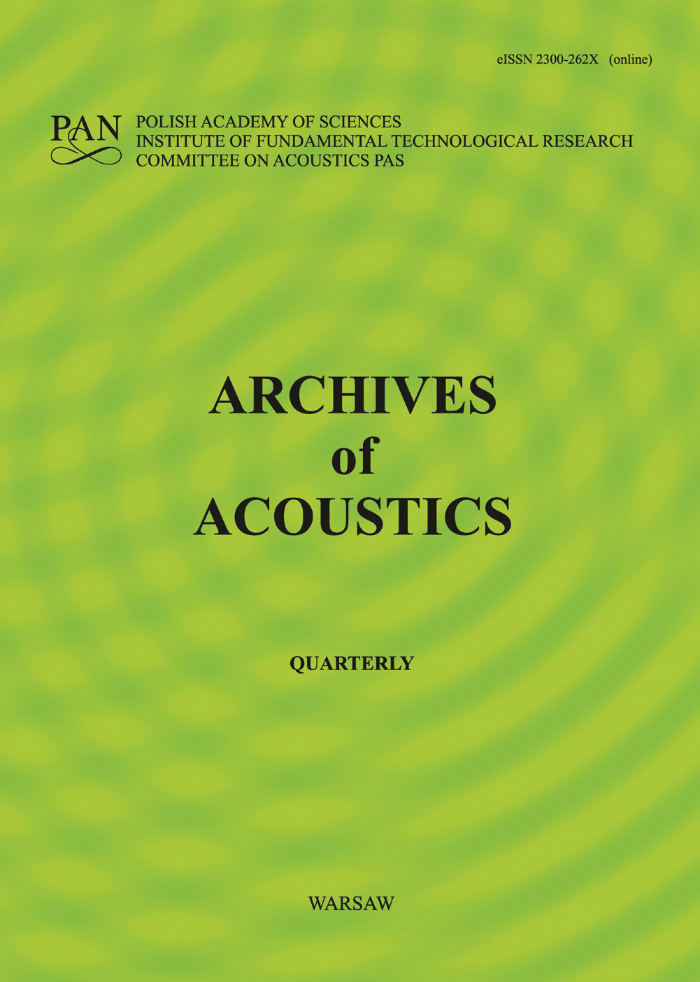Abstract
This paper discusses the possibility of signal distortions occurring in closed space for the rise and decay of signals. A theoretical analysis is conducted for a simplified case in which the character of phenomena is analyzed in relation to the value of the ratio of the time delay between successive signals and their period. The later part of this paper gives experimental results which confirm the possibility of distortions occurring in real conditions. It also discusses the possibility of the occurrence of phase, frequency and amplitude modulation and gives examples of signal shape distortion in its rising, obtained in two concert halls in the Academy of Music, Warsaw. A subjective analysis was performed of the audibility of distortions in simulated signals which were programmed with a regular kind of distortion. The results of distortion audibility in % and the subjective analysis of the audibility of distortions in real conditions have shown that these distortions can be perceived with their short duration of the order of several or a dozen or so milliseconds.References
[1] L.L. BERANEK, Music, acoustics and architecture, J. Wiley, New York 1962.
[2] S. CZARNECKI, Analyse spectrale des ondes acousliques en regime transitoire dans une chambre close, Acustica, 8 (1958).
[3] S. CZARNECKI, M. VOGT, Investigations of the effect of the interior on changes in transient acoustic behaviours (in Polish), Archiwum Akustyki, 2, 4, 313-322 (1967).
[4] S. CZARNECKI, B. OSIECKI, W. WYGNANSKI, Quasi-nonlinear transient distortions in interiors and their preliminary subjective evaluation (in Polish), Proc. XXVI Seminar on Acoustics, Wrocław–Oleśnica 1979.
[2] S. CZARNECKI, Analyse spectrale des ondes acousliques en regime transitoire dans une chambre close, Acustica, 8 (1958).
[3] S. CZARNECKI, M. VOGT, Investigations of the effect of the interior on changes in transient acoustic behaviours (in Polish), Archiwum Akustyki, 2, 4, 313-322 (1967).
[4] S. CZARNECKI, B. OSIECKI, W. WYGNANSKI, Quasi-nonlinear transient distortions in interiors and their preliminary subjective evaluation (in Polish), Proc. XXVI Seminar on Acoustics, Wrocław–Oleśnica 1979.


